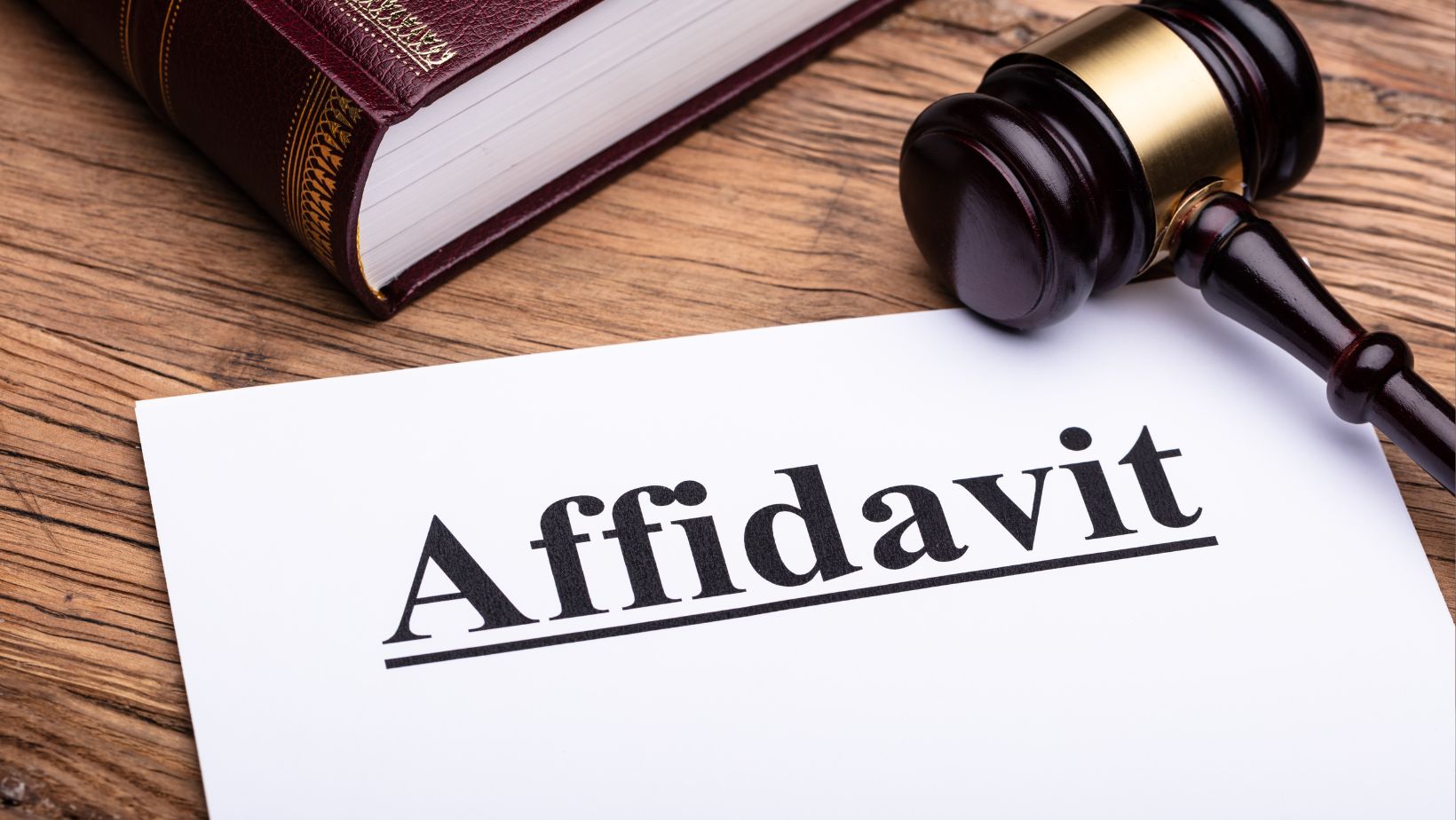When transferring property in the United States, legal documentation plays a pivotal role in ensuring smooth and valid transactions. One such critical document is an affidavit.
Such sworn statements are commonly needed in real estate transactions, estate planning, or dispute resolution. For instance, reviewing an affidavit example can help clarify how these documents are structured and used.
This article explores the importance of affidavits in property transfers, the types of affidavits, and their practical applications.
What Is an Affidavit?
An affidavit is a written statement sworn under oath and used as evidence in legal matters. It is a formal declaration of facts sworn in the presence of a notary public or other authorized official.
Affidavits are needed in property transfers, mainly for verifying ownership and solving any title disputes or special situations that could complicate the transaction otherwise.
An affidavit means that any false information created within it may carry heavy fines, or even criminal charges might be imposed. This means providing an avenue for greater transparency in various legal settings and contexts for accountability.
The Role of Affidavits in Property Transactions
Affidavits are a part of most property-related issues, and they serve as a way to prove ownership, disclose pertinent facts, and address possible legal issues.
Here are a few scenarios where affidavits are used:
Affidavit of Title
An affidavit of title is required in a sale or purchase of real estate. This document is the seller’s certification that he or she legally owns the property, that no undisclosed liens or encumbrances exist on it, and that no other claims can affect the title.

For example, in the case of a property where there is a pending legal dispute, an affidavit of title makes sure that such a problem is communicated to the buyer before finalizing the deal.
Affidavit of Heirship
When a property owner passes away without a will, an affidavit of heirship may be required to transfer ownership. This affidavit identifies the legal heirs of the deceased and confirms their entitlement to the property.
It is particularly useful in situations where probate court involvement needs to be minimized, as the affidavit helps streamline the transfer of property to rightful heirs.
Affidavit of Identity
Property transfers can sometimes encounter issues due to inconsistencies in documentation, such as variations in a person’s name. An affidavit of identity resolves these discrepancies by affirming that the different names refer to the same individual.
This is especially common in cases involving women who have changed their last name after marriage or individuals with alternate spellings of their name on official documents.
Benefits of Using Affidavits in Property Transfers
Affidavits offer several advantages that make them indispensable in property transactions:
- Preventing Fraud: Sworn statements help verify critical details, reducing the risk of fraudulent activities during property transfers.
- Resolving Disputes: When legal disputes arise, affidavits can serve as factual evidence to clarify ownership, boundaries, or other contested issues.
- Streamlining Transactions: By providing clear and verifiable information, affidavits help expedite property transfers, making them less prone to delays caused by legal complications.
- Ensuring Compliance: Many legal processes, such as mortgage approvals or title insurance, require affidavits to meet regulatory standards.
How to Prepare an Affidavit
Drafting an affidavit for property transfers requires careful attention to detail and adherence to legal standards. Here are the steps to follow:
- Understand the Purpose: Clearly identify why the affidavit is needed and what information it must contain.
- State the Facts Accurately: Provide a detailed account of the relevant facts using precise and unambiguous language.
- Include Supporting Documentation: Attach any relevant documents, such as ownership records or identification proofs, to substantiate the affidavit.
- Swear Before a Notary Public: Ensure the affidavit is signed in the presence of a notary or other authorized official to make it legally valid.
- Verify Local Requirements: Check the legal requirements for affidavits in your state, as regulations may vary across jurisdictions.
For detailed guidance, you can visit your state’s official government website.
Common Misconceptions About Affidavits
While affidavits are widely used, there are some misconceptions about their purpose and scope.

Below are a few myths and the facts that dispel them:
- Affidavits Can Be Changed Later: False. Once signed and notarized, affidavits cannot be altered. To make changes, a new affidavit must be prepared.
- They Replace Deeds in Property Transfers: Incorrect. Affidavits do not replace deeds or titles but serve as supplementary documents to validate or clarify details.
- Drafting an Affidavit is Simple: While it may seem straightforward, drafting an affidavit often requires legal expertise to ensure its accuracy and compliance with laws.
Real-Life Applications of Affidavits in Property Transfers
Affidavits are not merely theoretical tools; they are frequently used in real-world scenarios to resolve complex property issues. For example:
- Title Disputes: An affidavit of title can clarify ownership when discrepancies arise during a property sale.
- Estate Settlements: Heirs often rely on affidavits of heirship to transfer inherited properties without a will.
- Name Corrections: An affidavit of identity can resolve issues that might otherwise delay the closing of a property transaction.
These applications highlight the versatility and necessity of affidavits in ensuring smooth property transfers.
Conclusion
Affidavits are indispensable tools in property transactions, providing legal assurance, resolving disputes, and ensuring compliance with regulatory standards.
Whether you’re buying, selling, or inheriting property, having the appropriate affidavit in place can protect your interests and simplify the process. Always consult legal professionals or official resources to ensure your affidavit meets all necessary requirements.
















